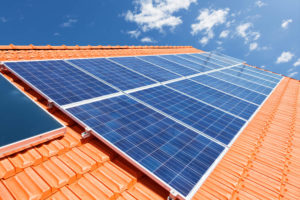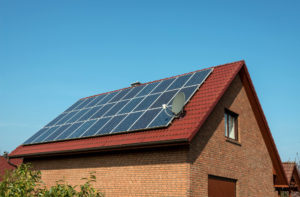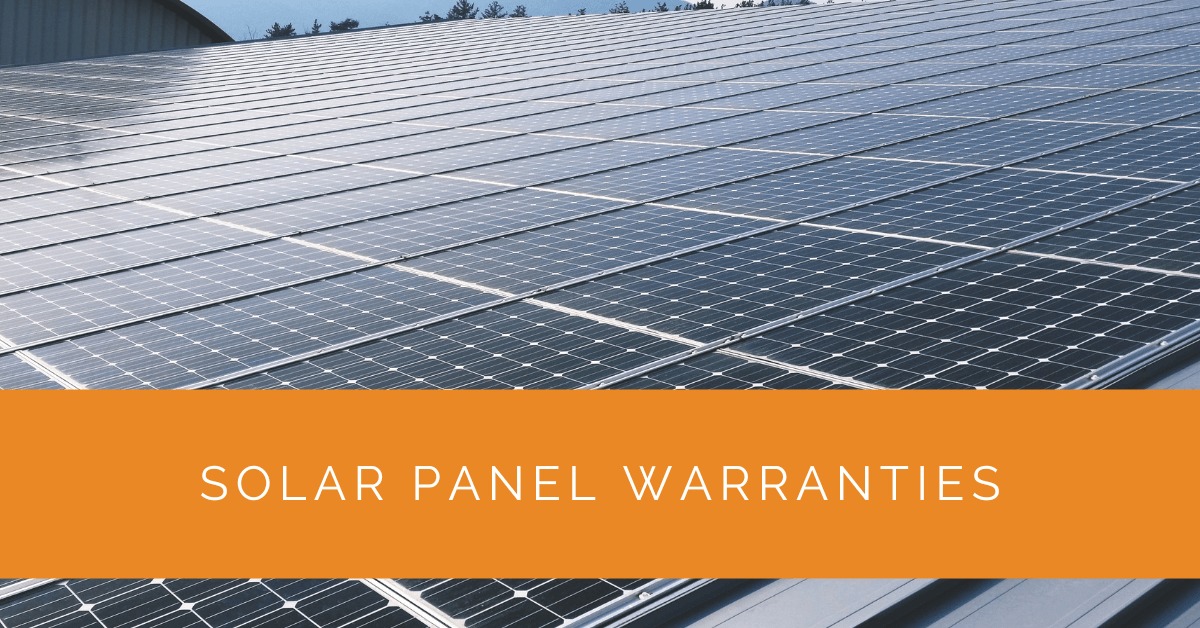Investing in solar panels is a smart choice for renewable energy and long-term savings. However, it’s crucial to understand the warranties associated with solar panels to protect your investment. This article will delve into the intricacies of solar panel warranties, covering different types, the warranty claim process, and tips for making the most of your warranty coverage. By the end, you’ll be well-equipped to navigate the world of solar panel warranties and ensure the longevity of your solar system.
Contents
- 1 Key Takeaways
- 2 Types of Solar Panel Warranties
- 3 Making a Warranty Claim
- 4 Shopping for Solar Panel Warranties
- 5 Case Study: Navigating Solar Panel Warranties for Maximum Coverage
- 6 Expert Insights From Our Solar Panel Installers About Solar Panel Warranties
- 7 Experience Solar Excellence with Us!
- 8 Conclusion
Key Takeaways
- Solar panel warranties, such as manufacturer warranties, equipment warranties, and performance warranties, are crucial for protecting your solar investment and ensuring long-term performance.
- When shopping for solar panel warranties, research reputable manufacturers and compare warranty coverage, considering factors like length of coverage, specific components covered, and performance guarantees.
- Understanding the steps to make a warranty claim and avoiding actions that can void your warranty will help you maximize your coverage and maintain the validity of your warranty.
Types of Solar Panel Warranties
Manufacturer Warranty
The manufacturer’s warranty is one of the most significant considerations regarding solar panel warranties. The solar panel manufacturer provides this type of warranty, encompassing various aspects of the panel’s performance and workmanship. It offers coverage against manufacturing defects, premature failure, and issues related to panel performance. Most solar panel manufacturers offer warranty periods ranging from 10 to 25 years, with some extending coverage for longer durations.
To make an informed decision, it’s essential to carefully review the terms and conditions of the manufacturer’s warranty. Look for specific coverage details concerning the solar cells, framing, and junction boxes. Additionally, pay attention to any limitations or exclusions in the warranty, such as potential voiding due to improper installation or neglecting recommended maintenance practices.
Equipment Warranty
Apart from the manufacturer warranty, solar panel systems often include equipment warranties for individual components such as inverters, connectors, and wiring. The respective equipment manufacturers typically provide these warranties and may have different terms and durations than the overall solar panel warranty.
When evaluating equipment warranties, it’s crucial to consider various factors. These include the warranty period, coverage of specific components, and whether the solar panel manufacturer or a third-party equipment supplier provides the warranty. Understanding the details of the equipment warranty ensures comprehensive coverage and protects against potential failures or malfunctions of vital system components.
Performance Warranty
Solar panels are designed to generate electricity over an extended period. However, over time, their performance can gradually degrade due to various factors such as environmental conditions and normal wear and tear. To assure panel performance, many solar panel manufacturers offer performance warranties.
A performance warranty guarantees that the solar panel will maintain a certain power output level over a specified period, typically 25 years or more. These warranties often include performance degradation rates, which indicate the expected annual decline in power output. Common degradation rates range from 0.5% to 0.8% per year. Understanding the terms and conditions of the performance warranty is crucial, as it provides insight into the specified power degradation thresholds and the process for making a warranty claim if the panel’s performance falls below the guaranteed levels.

Making a Warranty Claim
Steps to Follow
In the unfortunate event of needing to make a warranty claim for your solar panels, following the steps is crucial to ensure a smooth process. The initial step is to promptly contact the solar panel manufacturer or the installer who installed your solar system. They will guide you through the claim process and provide the necessary documentation requirements.
To initiate a warranty claim, you’ll need to provide proof of purchase, detailed information about the issue or defect, and any supporting evidence requested by the manufacturer or installer. Keeping thorough records of all relevant documents and correspondence related to your solar panel warranty is highly recommended. These records will facilitate the claim process and serve as valuable documentation for any future warranty-related inquiries.
Voiding Your Warranty
To safeguard your warranty coverage and ensure its validity, avoiding actions that could void the warranty is essential. Some common activities that may void the warranty include unauthorized repairs or modifications to the solar panels, using incompatible equipment or accessories, or neglecting proper maintenance and cleaning practices.
To prevent unintentional warranty voiding, thoroughly reviewing the warranty terms and conditions is vital. Adhering to recommended maintenance practices, such as regular cleaning and inspection, and promptly addressing any issues or concerns through authorized channels will help maintain the warranty coverage and protect your solar panel system.

Shopping for Solar Panel Warranties
Researching Solar Panel Manufacturers
When shopping for solar panel warranties, conducting thorough research on different solar panel manufacturers is essential. Take the time to gather information about their reputation, track record, and customer reviews. Look for manufacturers with a proven history of delivering quality products and honoring warranty commitments.
Check for customer feedback and experiences related to warranty claims and customer support. Positive reviews and testimonials indicating prompt and reliable warranty service can provide valuable insights into the manufacturer’s commitment to customer satisfaction. Conversely, pay attention to any negative feedback or recurring issues that may indicate potential concerns with warranty coverage or claim processing.
By researching solar panel manufacturers, you can gain confidence in their reliability and ensure that a reputable warranty protects your investment.
Comparing Warranty Coverage
Comparing warranty coverage among different solar panel manufacturers is an important step in decision-making. While the length of the warranty is a significant factor, it’s equally important to examine the specific components and aspects covered by the warranty.
A comprehensive warranty should address manufacturing defects and offer performance guarantees. Look for warranties that provide coverage for both product-related issues and the performance of the solar panels over time. A robust warranty will safeguard your investment against potential panel failures and ensure optimal performance throughout the warranty period.
Evaluate whether the warranty covers essential aspects such as panel failure, power output, workmanship, and the overall functionality of the solar panel system. Understanding each warranty’s coverage details and limitations will help you make an informed decision and choose the warranty that best suits your needs and priorities.
Remember that warranty coverage is an important factor. Still, it should be balanced with other considerations, such as the quality of the solar panels, the manufacturer’s reputation, and the system’s overall cost-effectiveness. Finding the right balance ensures that you receive the best value for your investment while enjoying the benefits of solar energy.
Background
At Solar Panels Network USA, we aim to help our clients make informed decisions about their solar investments. Recently, we assisted a residential client who needed clarification on their solar panel warranties. They wanted to understand the various types of warranties, their coverage, and the best practices for maintaining warranty validity.
Project Overview
Our project involved educating the client on the intricacies of solar panel warranties, comparing warranties from different manufacturers, and guiding them through the process of selecting the most comprehensive coverage for their needs.
Implementation
Initial Consultation
We began with an initial consultation to understand the client’s current knowledge and concerns about solar panel warranties. This allowed us to tailor our approach to address their specific needs and questions.
Detailed Explanation of Warranty Types
We provided a detailed explanation of the three main types of solar panel warranties:
- Manufacturer Warranty: Coverage against manufacturing defects and premature failure, usually ranging from 10 to 25 years.
- Equipment Warranty: Specific to components like inverters and connectors, often provided by third-party manufacturers with varying terms.
- Performance Warranty: Guarantees a certain power output level over time, typically covering 25 years with degradation rates of 0.5% to 0.8% annually.
Comparison of Warranty Coverage
Next, we helped the client compare warranties from several reputable solar panel manufacturers. This comparison included:
- Length of Coverage: Evaluating the duration of each warranty.
- Coverage Details: Assessing the specific components and performance guarantees covered.
- Exclusions and Limitations: Identifying any conditions that might void the warranty.
Guidance on Best Practices
We emphasized the importance of maintaining proper documentation and adhering to recommended maintenance practices to keep the warranty valid. This included:
- Regular Cleaning and Inspections: Ensuring the panels are clean and free from debris.
- Authorized Repairs: Using only certified technicians for any repairs or modifications.
- Keeping Records: Maintaining detailed records of all maintenance and communications related to the solar panel system.
Results
The client gained a thorough understanding of solar panel warranties and felt confident in their ability to select and maintain comprehensive coverage. They chose a reputable manufacturer offering a robust warranty package that included extensive product and performance guarantees. By following our guidelines, the client could maximize their warranty coverage and ensure the long-term efficiency and reliability of their solar panel system.
Summary
This case study highlights the importance of understanding and carefully selecting solar panel warranties. At Solar Panels Network USA, we empower our clients with the knowledge they need to protect their investments and make the most of their solar energy systems. By providing detailed explanations, comparing options, and emphasizing best practices, we ensure our clients are well-equipped to navigate the complexities of solar panel warranties.
Expert Insights From Our Solar Panel Installers About Solar Panel Warranties
Understanding the details of your solar panel warranty is crucial. It ensures that you know what is covered and helps you avoid actions that could void the warranty, protecting your investment in the long run.
Senior Solar Installer
Always look for comprehensive warranties that cover both the product and performance aspects. This way, you safeguard against manufacturing defects and ensure consistent energy production over the years.
Lead Solar Technician
Promptly addressing any issues and maintaining proper records of all warranty-related documents can significantly smooth the process of making a claim, ensuring you get the service you need when you need it.
Solar Installation Expert
Experience Solar Excellence with Us!
Trust in Solar Panels Network USA, where our seasoned experts deliver top-quality solar solutions for homes and businesses nationwide. With a legacy of countless successful installations and a commitment to sustainable energy, we’re your reliable partner in the solar journey. Ready for a brighter, eco-friendly future? Call us now at (855) 427-0058 and harness the power of the sun!
Conclusion
Solar panel warranties are crucial to protecting your solar investment and ensuring long-term performance and reliability. By understanding the different types of warranties, such as manufacturer warranties, equipment warranties, and performance warranties, you can make informed decisions when selecting solar panels for your home or business.
Knowing the steps to make a warranty claim and avoiding actions that could void your warranty is essential for maximizing your coverage. Thorough research on solar panel manufacturers and careful evaluation of warranty coverage will help you choose a reliable and comprehensive warranty that meets your specific requirements.
Solar panel warranties not only protect against manufacturing defects but also provide guarantees for panel performance over an extended period. By considering all aspects of solar panel warranties, you can confidently embrace solar power, contribute to a greener future, and enjoy the long-term benefits of clean and sustainable energy.
Remember, this article provides general information about solar panel warranties, and it’s advisable to consult with a professional solar installer or manufacturer for specific warranty details tailored to your solar panel system.
About the Author
Solar Panels Network USA stands at the forefront of solar energy solutions, driven by a team of seasoned solar engineers and energy consultants. With over decades of experience in delivering high-quality solar installations and maintenance, we are committed to promoting sustainable energy through customer-centric, tailored solutions. Our articles reflect this commitment, crafted collaboratively by experts to provide accurate, up-to-date insights into solar technology, ensuring our readers are well-informed and empowered in their solar energy decisions.

